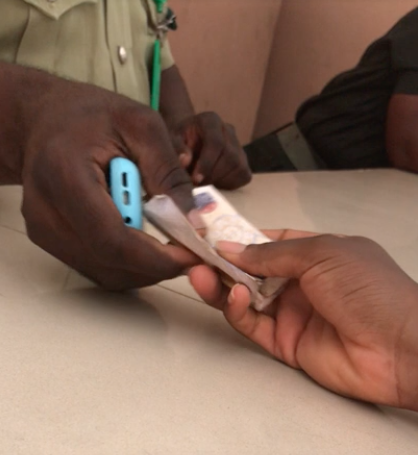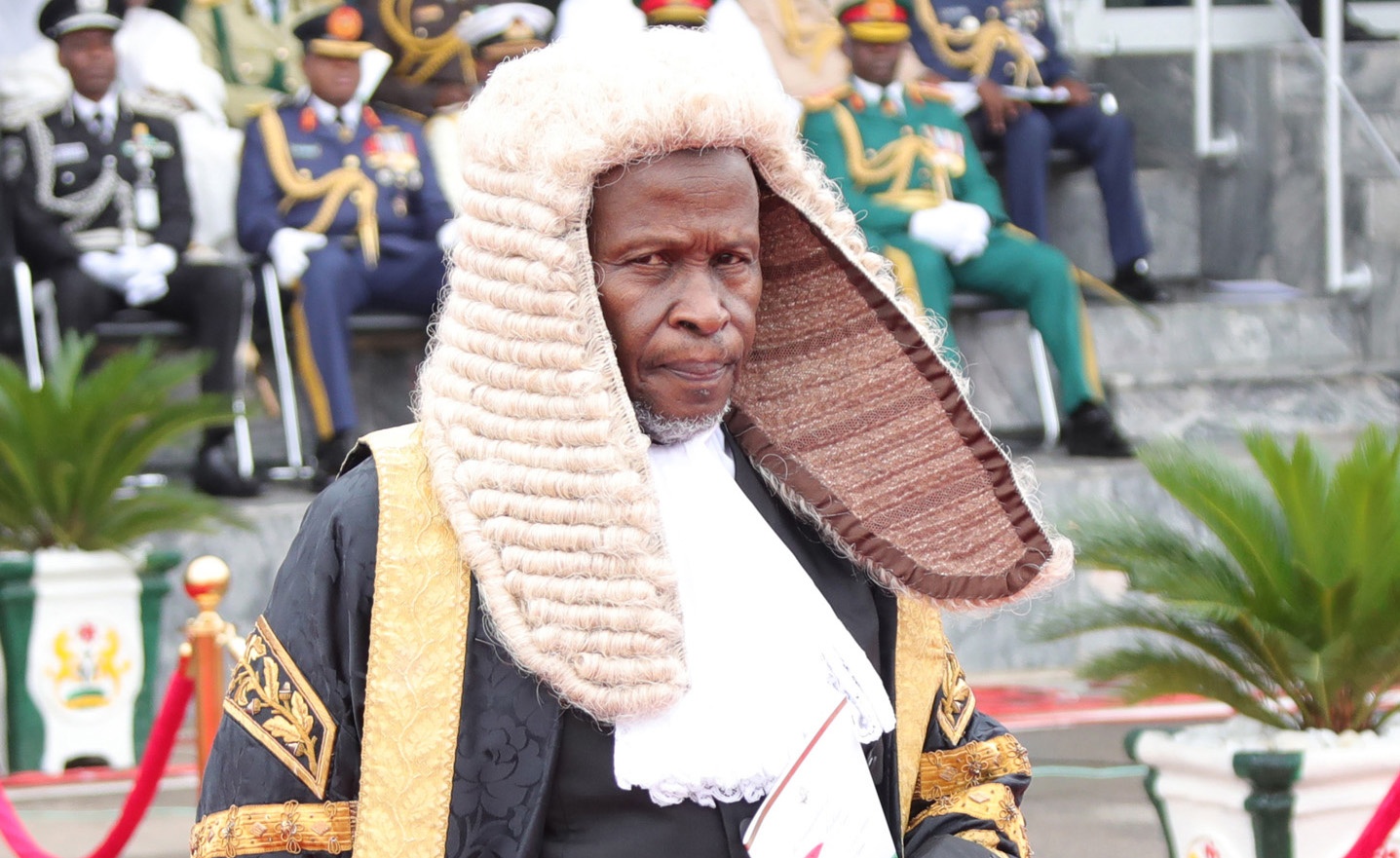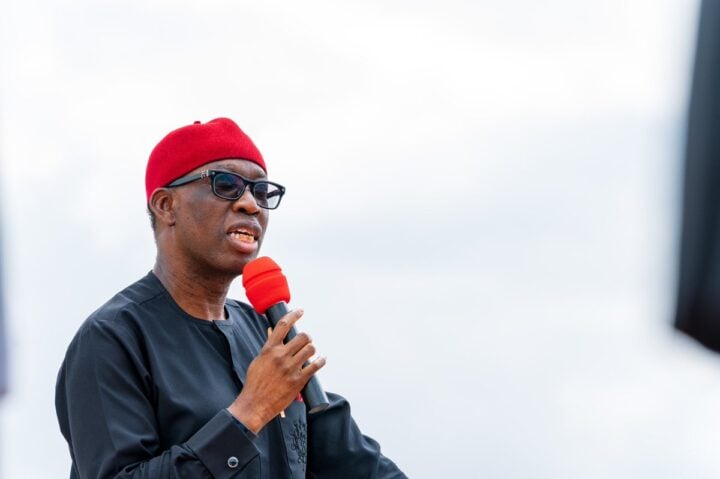When assessing the reasons for non-development of countries in sub-Saharan Africa like Nigeria, commentators and scholars cite corruption as being responsible. Now, my response has always been to point out the fact that Africa does not have a monopoly on corruption. The Bible has numerous illustrations of corruption. Jeremiah 17:9 ASV says that “The heart is deceitful above all things, and it is exceedingly corrupt: who can know it?” And who can forget Judas Iscariot utterances when he sought to betray Jesus in Matthew 26: 15: “What are you willing to give me if I deliver him over to you?’ So, they counted out for him thirty pieces of silver.”
The fact is that human beings have always been corrupt and as such I refuse to accept Africa being labelled as corrupt- not because I condone corruption but because it is important to call out all the different versions of this practice in different settings, albeit with different names. For instance, I would argue that lobbying is actually bribery covered with a more luxurious looking packaging because the latter’s objective of buying power is focused on the same outcome as the former’s goal of influencing power by offering contributions. The bottom line is that corruption ranges from the individual level to systemic like in the case of the ill-reputed biblical city of Sodom and Gomorrah which we are told was eventually destroyed. Thus, all peoples are prone to being corrupt!
To be clear, the objective of this article is not to make excuses for corrupt practices; it is meant to provide food for thought for readers to consider the possible origin of the form of corruption found in Africa by highlighting the possible link between slavery/colonialism and corruption. Essentially, I am arguing that slavery and then subsequently, colonialism, were implemented with the use of enticements to compel and persuade African chiefs and leaders to work with the Europeans by selling their people or agreeing to other forms of extractive practices. Enticements are certainly not the same things as gifts- for instance, the account of the three wisemen bearing gifts for the infant Jesus were meant as a mark of respect, celebration of life, and symbolism.
Let’s consider the Europeans’ entanglement with Africa. To start off with, the scramble for Africa’s resources that led to the division of the continent by the Europeans at the Berlin Conference of 1884 was an extremely audacious and corrupt exercise because those gathered there had no business carving out and sharing an entire continent that did not belong to them in the first place! Thereafter, guns were used to subdue the natives as their lands became occupied- again these acts of violence were definitely forms of corruption. Subsequently, when they had captured these regions, the colonial masters proceeded to impose unfair taxation systems on the indigenes that required payment of taxes in European currencies. This meant that natives could only earn their living by working for low wages on the colonialists’ establishments. The resultant effect was that entire family members ended up being employed on colonialists’ enterprises to make ends meet instead of pursuing their own family businesses and developing their specialised skills. The notion of taxation on its own is not corrupt because it ensures that public goods are funded and provided by the state, however, the manner in which people were enslaved to work for little pay as well as the way in which local chiefs were employed and motivated to collect taxes were dreadful and corrupt. The chiefs enriched themselves from this process because they kept back some of the proceeds, thereby amassing wealth from tax revenues.
Advertisement
There is also the notion of divide and rule whereby, using conquest, the colonialists aligned with one group to overthrow the ruler of another faction, thereby creating rifts and disunity. This resulted in rivalry as certain groups became perceived as favoured by the colonial masters as they ended up enjoying more perks for their loyalty.
Then you have the building of the public sector during the colonial era. Africans in the civil service were employed as junior staff and they worked alongside their European colleagues who were employed as senior service staff. These senior service staff were entitled to car allowances, first class travel, European style quarters with rent fixed at ten percent of their’ salary, whilst, the Africans had shorter vacations, bicycles, and motorcycle allowances and among other things fixed voluntary retirement at age 45. This disparity in payment and benefits made the junior service staff extremely resentful and they ended up creating alternative avenues to earn income by demanding payment from citizens to have their files treated. Similarly, in the private sector the foreign companies employed indigenes in the most insignificant roles and paid them very little whilst their European colleagues earned and lived lavishly. Consequently, the society inherited from the colonial masters mostly lacked trust, thereby leading to disenchantment, discontent, and dissatisfaction post-independence- essentially, people sought the fastest way to make money by any means necessary.
As human beings we “learn by doing’ and ‘develop capabilities by routines”- thus, it would appear that the practice of corruption has evolved into part of the society’s DNA post-independence in all sectors- not just public sector. Africans learnt by observing the colonial masters offer their chiefs “mirrors” and “shiny objects” for them to sell their souls and their people into slavery. They also observed the colonial masters extract their local resources to export them into their own countries, then turn around to sell them back to Africans in the form of finished goods in shiny packages rather than in investing in manufacturing and technology in Africa- Nigeria at independence in 1960 had a total of 389 industrial establishments, to produce soap, cement, tobacco, textile, and brewing.
Advertisement
We mustn’t forget the numerous African art works “taken” from Africa and kept in museums in Europe and North America today. This colonial looting was another form of corruption. Sadly, despite several attempts by African countries to claim these objects back post-independence, it is estimated that at least 90% of pre-colonial art works remain out of Africa. Today, Africans are self-looting and draining the continent’s resources and keeping them safely in investments and assets in other continents further strengthening other nations’ wealth to the detriment of their future generations.
In Africa today there are different actors in the public, private and civil society sectors that facilitate the institution of corruption. It has now become so pervasive in the society that even those who preach against in their shiny suits and collars in places of worship are not excluded as they amass wealth from their poor congregants who are sold false hopes of a better tomorrow. It would appear that some of the temples of worship are also in need of the money changers’ tables being over-turned and cleared up.
The young people have not been spared! Numerous young people are full-time fraudsters- graduating from cybercrime training schools to big time fraudsters appearing on the cover business magazines, or as influencers on social media with millions of followers! Corruption has become a dominant institution that operates at different levels in different sector of the society- from large sums of money being misappropriated by government officials, to large sums of unexplained funds stashed being stolen from estates, farms and homes by domestic staff who observe their masters’ moves- just like junior staff in the colonial days. So, who has the moral authority to judge the domestic staff thieves or the young cyber criminals? Who should be put away in prison with a longer sentence- the embezzler’s or the house? Come to think of it, are there any legitimate institution available to address corruption especially as these same institutions are active participants and actors in its ecosystem. The bottom line is that the institution of corruption is actively sustained by the institutions set up to deal with it, thereby creating a vicious cycle.
Sadly, the resultant effect of the growing importance of this deviant institution called corruption, is that the African continent is haemorrhaging from resource leakages. Africans have themselves to blame if they do not turn things around and stop this leakage as their resources, like the valuable art works, will continue to leak out of the system and be exported somewhere else, making it difficult for them to be reclaimed or returned to the continent. The fact is that we are all social agents that need to hold the system accountable and as such it is in our collective interest to ensure that we develop local capabilities to build up institutions to ensure that resources are kept on the continent for development.
Advertisement
In conclusion, we need leaders that will facilitate the reframing of the narrative written for Africa by turning this vicious cycle of corruption into a virtuous cycle so that we can sustainably reclaim the continent for growth and prosperity for future generations!
Views expressed by contributors are strictly personal and not of TheCable.
Add a comment







